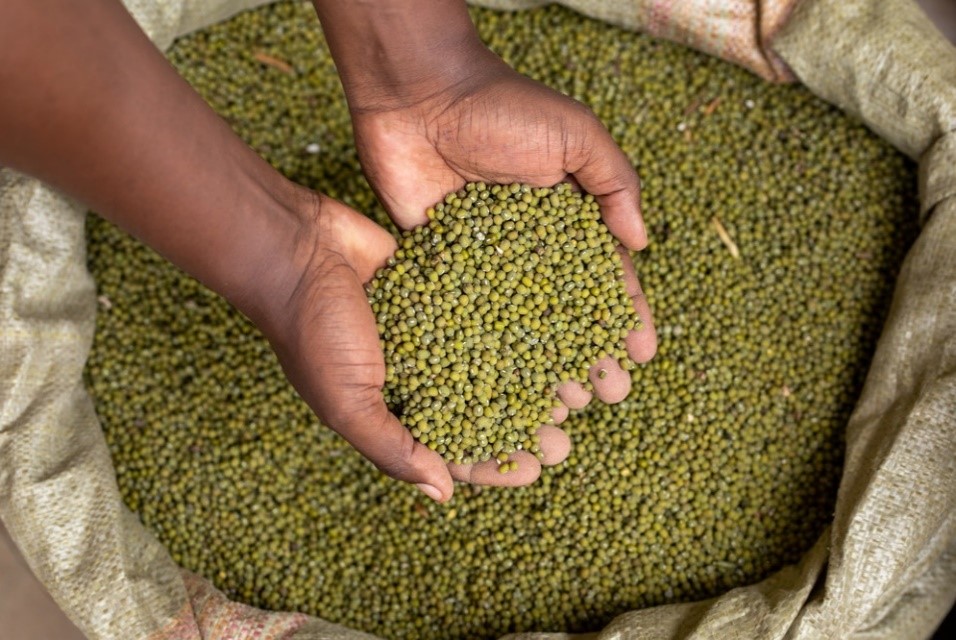It’s time to transform African agriculture. These numbers show why
Agriculture in Africa is at a crucial juncture. Following recent crises, countries are beginning to prioritize their food sovereignty, which depends on small-scale farmers for food security. Food systems account for the majority of jobs on the continent. And as its huge and talented youth population grows up, African agriculture has enormous potential to not only feed Africa, but also the world.
Yet, global conditions—such as unequal markets, unfair trading rules and subsidies that favour big companies—are holding small-scale African farmers back. The situation is only worsened by climate change, while a lingering reliance on food imports makes it harder for people to get the food they need and earn a decent living.
Here are five numbers that show how transforming African agriculture can make a big difference.
278 million people in Africa were affected by hunger last year.
The global community committed to a world without hunger by 2030. But as conflict, climate change, and food and energy crises accelerate, that goal seems ever further.
Sustainable, local agriculture and food production enable poor rural people to earn an income and build resilience against shocks. To help the world’s most vulnerable countries withstand shocks, like the war in Ukraine, IFAD’s Crisis Response Initiative is meeting the immediate needs of the poorest rural people while building sustainable food systems for the long term.
In the last 100 years, Africa recorded 300 severe droughts – more than any other continent.
And this figure will only increase with climate change. As hundreds of millions of people already depend on degraded lands, increased drought will inevitably increase food insecurity, migration and conflict.
Sustainable agriculture is critical to preventing land degradation and restoring ecosystems. The Great Green Wall is helping millions of small-scale farmers in 11 countries farm more sustainably, in turn increasing food security and livelihoods.
In Niger, IFAD supported the restoration of over 1,000 square kilometres of land and increased crop yields as much as 40 per cent.

Small-scale producers at the heart of resilient food systems. Sustainably increasing small-scale farmers’ productivity reduces rural poverty and food insecurity, creates decent rural employment and makes it easier for people to get local and nutritious foods, while protecting the planet.
In Burkina Faso, community gardens are filled with plants like moringa and baobab, which both sequester carbon and are a mainstay of nutritious diets.
Africa’s agribusiness sector is projected to value US$1 trillion by 2030.
Agribusinesses provide the inputs and services small-scale farmers need and connect them to broader markets. They employ millions of people on the continent. A flourishing agribusiness sector makes for flourishing agriculture.
The Uganda Yield Fund invests in small and medium-sized agribusinesses, giving them access to capital and creating prosperity for businesses and farmers alike. While in Tunisia, young women are setting up small enterprises with IFAD support, creating employment in their rural hometowns.
Women do about 40 per cent of crop production work in Africa.
Women do much of the labour on farms and in food systems, but their knowledge, contributions and skills are often underpaid, under-valued and under-recognised.
It’s not just an economic issue—it’s a gender one too. Supporting gender-transformative agricultural approaches means better economic opportunities for women, which in turn leads to fairer and more productive rural economies.
For example, in Sudan, IFAD has helped women’s saving groups access credit. It’s enabled them to grow their agriculture businesses and improved their standing in communities.
These numbers show why transforming African agriculture matters. But to see this change happen, a final figure is needed: USD 600 billion. This is the estimated cost of transforming African food systems by 2030 so they deliver healthy communities, a healthy planet, and a healthy economy. Better food systems need better finance, and while change comes at a cost, it also comes with huge opportunities.
To jump-start this change, IFAD’s African Agricultural Transformation Initiative will help Ghana, Kenya, Malawi and Senegal make effective and sustainable changes to their food systems by empowering the small-scale producers and SMEs, and bridging the gap between strategy and interventions that lead to sustainable transformation on the ground.